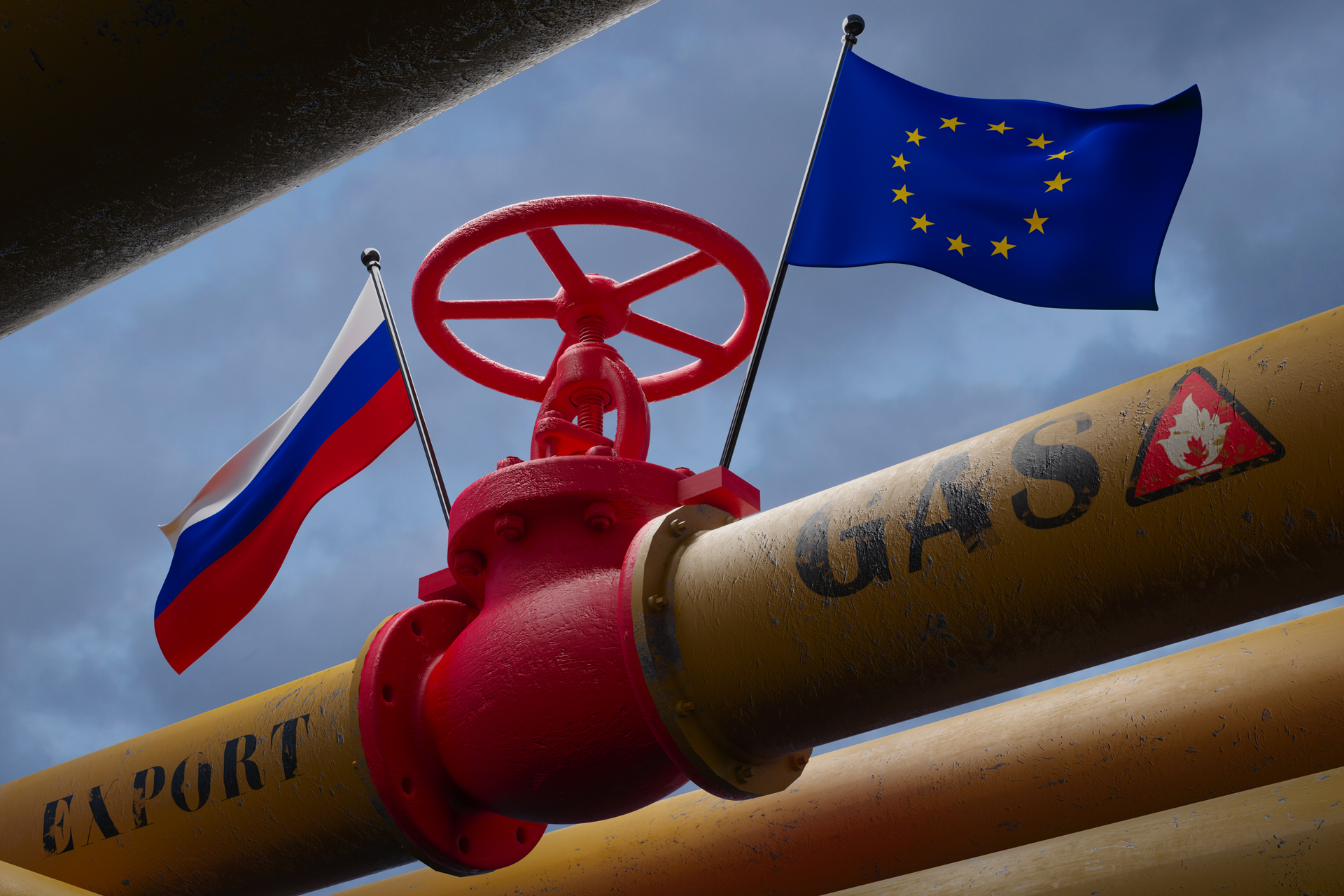European Union energy ministers failed on Thursday to agree on a cap on Russian gas prices to ease Europe's energy crisis, amid deep divisions over an initial proposal many described as a "joke".
Several ministers meeting today complained that the proposed gas price cap on the table, which the European Commission unveiled just two days ago, was clearly designed to never be used, according to Agence France-Presse.
EU Energy Commissioner Cadre Simpson acknowledged the divisions over price caps while attending the meeting.
Czech Minister of Industry Josef Sekela, whose country holds the current presidency of the European Union, said that the ministers will meet in the first half of next December in an attempt to resolve the differences.
He added that ministers were able to take some other "important measures", including joint gas purchases to avoid price-raising intra-EU competition, provide solidarity in times of need, and speed up licensing for renewables.
The plan sets a maximum price of 275 euros per MWh.
But the limit comes with so many conditions attached that it would not have been triggered until last August, when the price of gas briefly rose above €300, sparking concern in Europe, used to historical prices at around 10%, of that.
The Italian Energy Minister said that 15 European countries oppose setting a ceiling on the price of Russian gas.
The price cap plan - if adopted - will begin next January, and this will take place in conjunction with a voluntary initiative by EU member states to reduce natural gas use by 15%.
15 European countries oppose setting a ceiling on the price of Russian gas (Shutterstock)
The maximum price proposed by the committee is seen under pressure from members including Germany and the Netherlands;
Although neutral, other countries fear that a cap would divert gas supplies to more profitable markets, especially Asia.
However, at least 15 EU countries (more than half of the bloc) want some form of a practical ceiling on wholesale gas prices to address the supply crunch created by Russia's war in Ukraine.
While the European Union did not ban Russian gas, the Kremlin stopped the flow of gas in response to sanctions imposed by Brussels in the wake of Moscow's war on Ukraine.
Before the war, Russian gas supplies accounted for more than 40% of the total gas imported into the European Union, and Germany (the exporting power) was in dire need of it in particular.
Supply has now fallen to less than 10%.
But alternative sources - such as liquefied natural gas shipped from the US and the Gulf - cannot make up the shortfall, and Europe faces a steep heating bill for the winter.
Biden confirms that efforts to cap the oil price are still in place
In the same context, US President Joe Biden said in statements to reporters today, Thursday, that Washington and the allies' proposal to put a ceiling on the price of Russian oil still exists, adding that he had spoken to Treasury Secretary Janet Yellen in this regard.
The Group of Seven is looking forward to setting a maximum price for Russian oil transported by sea between 65 and 70 dollars a barrel, but the governments of European Union countries have not yet agreed on the price, and talks are scheduled to continue in this regard.
The European Union and the United States have intensified their attempts in recent days to reach an agreement on setting a ceiling for Russian oil prices.
Putin warns of dire consequences for global energy markets
Russian President Vladimir Putin said a cap on Russian oil prices would have "serious consequences" for global energy markets.
Putin added, in a press statement issued by the Kremlin today, that the attempts of some Western countries to impose restrictions on the cost of Russian crude oil are contrary to the principles of the global market, and will have serious repercussions on energy markets.
The statement issued by the Kremlin stated that the Russian president's remarks came during a telephone conversation with Iraqi Prime Minister Muhammad Shia'a al-Sudani.
The Russian "TASS" agency quoted a Kremlin spokesman as saying that Putin had issued instructions not to export oil and gas to countries that set a price ceiling.

